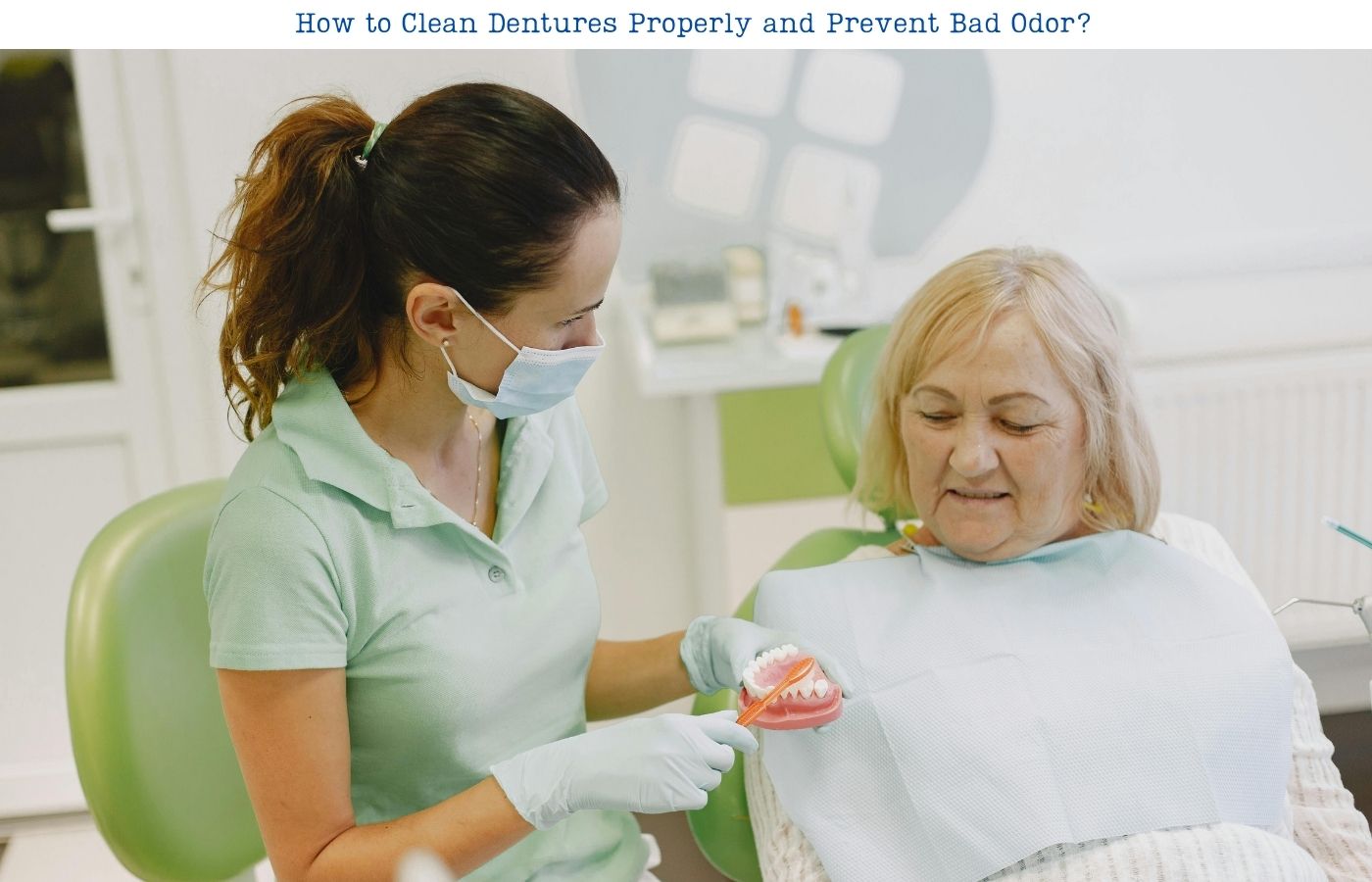
For millions of people, dentures offer a life-changing solution to tooth loss—restoring confidence, chewing ability, and speech. However, just like natural teeth, dentures need regular cleaning and care. If neglected, they can develop stubborn stains, tartar buildup, and an unpleasant odor. In this blog, we’ll cover how to clean dentures, tips to prevent denture odor, and methods like how to clean dentures with vinegar, ensuring you get the most out of your smile.
Denture care is essential not only for maintaining a fresh breath and confident smile but also for your overall oral health. Dirty dentures can harbor bacteria and fungus, leading to gum irritation, infections, and bad odor. Just as we brush our natural teeth daily, proper cleaning of dentures is non-negotiable.
Let’s begin with the fundamental steps on how to clean dentures:
After every meal, remove your dentures and rinse them under running water. This helps remove food particles and prevents bacteria buildup.
2. Handle With CareDentures are fragile. When cleaning, stand over a folded towel or a basin filled with water to prevent damage if they fall.
3. Brush DailyUse a soft-bristle toothbrush or a denture brush to clean all surfaces of the denture—inside and out. Avoid regular toothpaste, as it's abrasive and may scratch the surface. Instead, opt for mild dish soap or a denture cleanser.
4. Soak OvernightMost dentures need to remain moist to retain their shape. Soak them in a mild denture-cleaning solution or plain water overnight.
5. Rinse Before WearingBefore putting dentures back in your mouth, especially after soaking them in a cleansing solution, rinse thoroughly to avoid chemical irritation.
Bad breath from dentures is often caused by bacteria, plaque, or food trapped in tiny crevices. Here’s how to master denture odor removal:
1. Clean Daily Without FailEven skipping one day of cleaning can lead to bacteria buildup and odor. Consistency is key.
2. Use Denture CleanersThere are several non-abrasive denture cleaning tablets available in the market. Drop one into warm water with your dentures and soak as per instructions.
3. Clean Your Mouth TooIf you have partial dentures, brush your remaining teeth and use a tongue scraper. Gum tissue and tongue can also harbor bacteria that cause bad odor.
4. Avoid Tobacco and Staining FoodsSmoking, coffee, tea, and red wine can discolor dentures and contribute to odor.
5. Regular Dental VisitsYour dentist will inspect your dentures for fit, cleanliness, and any early signs of infection or damage that could cause bad smells.
Incorporating these dentures cleaning tips into your routine will go a long way in keeping your dentures fresh and long-lasting:
It can warp dentures.
2. Use only denture-approved products:Avoid whitening toothpastes or bleach.
3. Don’t sleep with dentures:It gives your mouth tissues time to rest and reduces infection risk.
4. Brush gums and tongue:Stimulate circulation and reduce bacteria.
5. Replace when needed:Over time, even well-cared-for dentures may need replacement.
Many people are turning to natural remedies, and vinegar is one such effective solution. How to clean dentures with vinegar? Here's a simple and safe method:
Materials Needed:
Steps:
Even the most well-intentioned wearers can make these cleaning mistakes:
Avoiding these will keep your dentures functional and your mouth healthy.
Regular dental visits should be part of your denture care routine. Call your dentist if you notice:
These could be signs that your dentures need adjustment, replacement, or professional cleaning.
Taking the time to learn how to clean dentures properly is one of the best ways to keep your oral health in check. Whether you're using commercial solutions or trying natural methods like cleaning dentures with vinegar, the goal remains the same: eliminate bacteria, prevent odor, and extend the life of your dentures.
With these denture cleaning tips, not only can you prevent bad odor, but you can also boost your self-esteem and protect your health. Clean dentures mean a cleaner mouth—and a happier you!